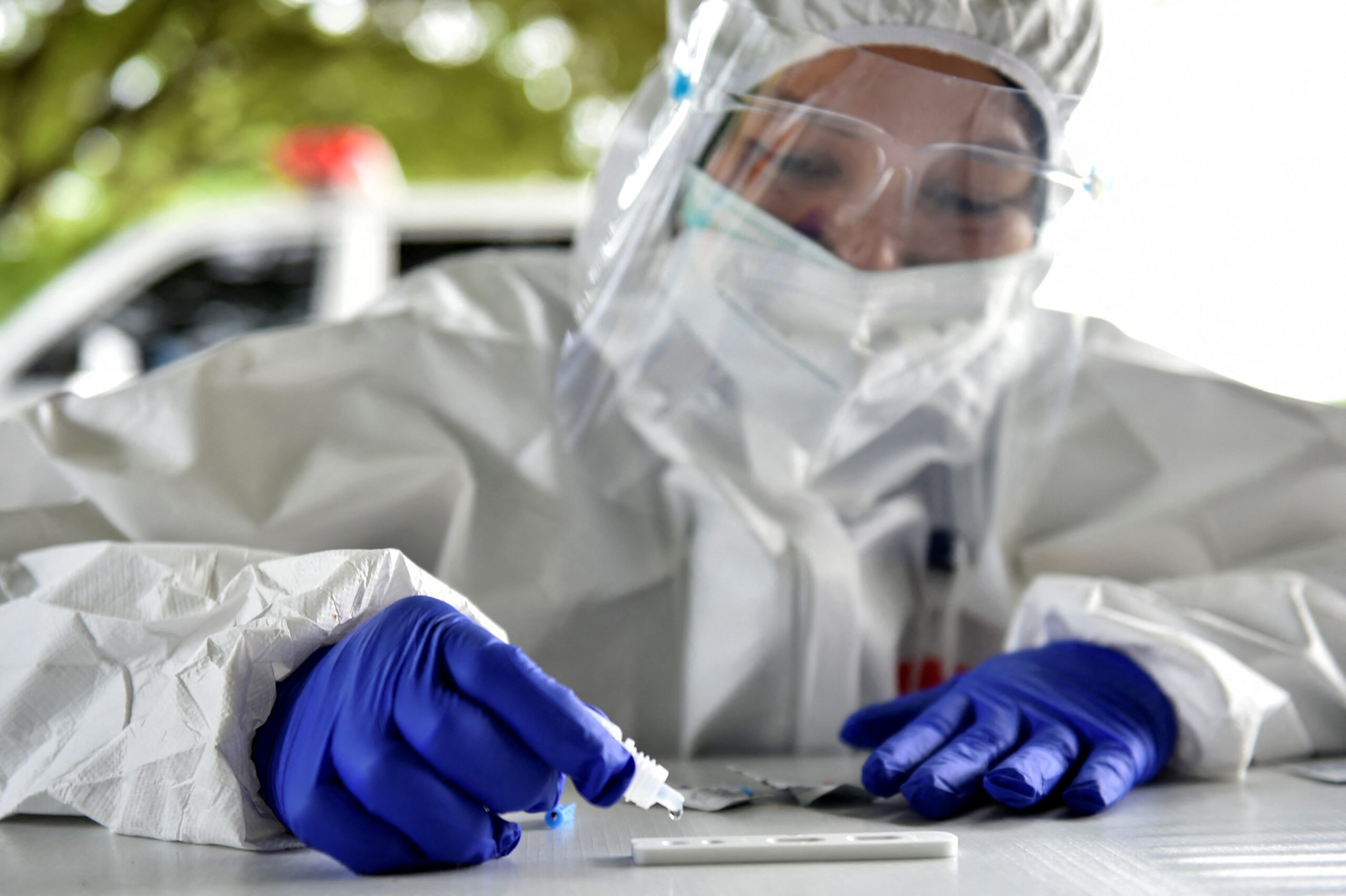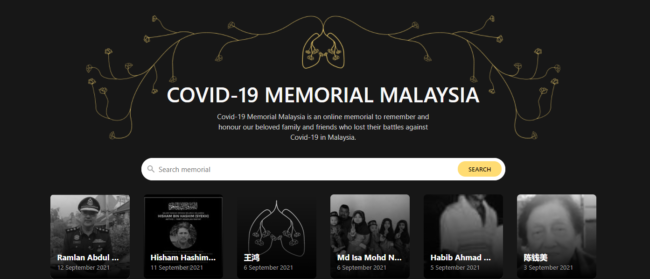Nuclear weapons have the potential to kill millions of innocent people, putting the natural environment and future generations in jeopardy. Yet nuclear technology’s peaceful side has played a critical role in providing practical solutions to real-world challenges.
One of those benefits is the utilization of a nuclear-derived technology called real-time reverse transcription polymerase chain reaction, or RT-PCR, to diagnose COVID-19. Unlike traditional RT-PCR, which only provides data at the conclusion of the process, the sensitive nuclear technology allows scientists to examine the results instantly while the procedure continues.
Indonesia has a remarkable leadership role and experience within the International Atomic Energy Agency (IAEA), the organization promoting peaceful use of nuclear technology in coordination with the United Nations.
Real time RT-PCR technology has been promoted globally by the IAEA since June 2020 under its extra-budgetary initiative, The Zoonotic Disease Integrated Action, or ZODIAC. Indonesia could position itself as a key player in the use of this nuclear COVID-19 detection application by bolstering its multilateral diplomacy at the IAEA, with the goal of securing consensus among member states to optimize ZODIAC.
Originally, real-time RT-PCR application included utilization of radioactive isotope markers to detect the virus, but additional refinement has resulted in the employment of unique markers, most often fluorescent dyes.
Through ZODIAC, the IAEA has helped 285 national laboratories in 128 countries to diagnose COVID-19 using 274 real time RT-PCR kits, with the kits used to test more than 7.5 million people globally.

The IAEA sent two real-time RT-PCR kits to Indonesia. The Health Laboratory Unit in Pontianak, West Kalimantan, operates one kit, while the Indonesian Research Centre for Veterinary Science (BB-LITVET) in Bogor, West Java, uses another for research purposes. BB-LITVET, Indonesia’s veterinary research facility, is equipped with a Biosafety Level 3 (BSL-3) laboratory and the integrated information system called InBIG IRCVS, which is accessible worldwide.
Daryati, head of Pontianak Health Laboratory Unit, said in July that the kit has helped the local administration deal with COVID-19 by supplementing the laboratory’s existing, traditional RT-PCR machines and examining all samples from across West Kalimantan province in a timely manner.
Although the IAEA was able to quickly mobilize and provide technical assistance to address the pandemic through ZODIAC, it is unclear whether the agency will be able to ensure the initiative’s long-term sustainability due to ZODIAC’s reliance on financial and in-kind contributions from donors.
For a five-year period, the overall budget for ZODIAC has been estimated at €165.97 million (about $195.9 million). However, as of December 2020, extra-budgetary contributions from donors totalled only €27.1 million ($31.9 million), or 16.3% of overall target funding.
Even though the contribution for ZODIAC implementation in its first year met the target, it is unclear whether the IAEA will be able to sustain ZODIAC funding through the next four years, given the impact of the pandemic on the global economy.
This situation may limit the ability of current and potential donors to provide additional fiscal support for ZODIAC’s implementation. In the long run, ZODIAC’s ability to respond to zoonotic diseases like COVID-19 and its variations may be impeded. Considering its positive contribution to national responses to the pandemic and future preparation to combat emerging and re-emerging zoonotic diseases, ZODIAC optimization is timely.
it is unclear whether the IAEA will be able to sustain ZODIAC funding through the next four years, given the impact of the pandemic on the global economy
Indonesia effectively chaired the IAEA’s Board of Governors (BoG) in 2017-2018, in keeping with its mission of advancing nuclear technology for peaceful purposes. The BoG is a policy-making body made up of 35 countries elected from 170 member countries’ regional groups.
Indonesia is also a prominent member of the G77, a coalition of 134 developing countries. The group’s position is compatible with Indonesia’s principled stance that the IAEA’s technical cooperation program is a vital tool for developing nations to achieve socio-economic growth. Thus, it should be continuously strengthened.
Furthermore, Indonesia is an active participant in the Non-Alignment Movement (NAM). This will serve as a vehicle for gaining greater political support for the idea, ensuring ZODIAC’s sustainability. Indonesia could also use the NAM Centre for South-South Technical Cooperation (NAM-CSSTC) in Jakarta to raise awareness about the relevance of ZODIAC and how it can be improved.
Optimization of an initiative is not a new thing for IAEA. In 2004, IAEA launched the Programme of Action for Cancer Therapy (PACT), which began as an extra-budgetary initiative, but was upgraded to a regular programme because of its importance in global cancer diagnosis and treatment.
What does ZODIAC’S optimization mean for Indonesia and other developing countries? If all member states agree, optimization will elevate ZODIAC’s financial status from extra-budgetary to regular budgetary, allowing it to be sustained by sufficient, assured and predictable resources rather than extra-budgetary contributions.
These resources will enable ZODIAC to expand beyond its current programs and activities, which could result in the global distribution of more RT-PCR kits and, most importantly, the designation of ZODIAC collaborating centers in several regions. These centers will help countries in the region develop their nuclear technologies by sharing knowledge and expertise.
This also is a good opportunity for Indonesia to offer its BB-LITVET as a ZODIAC collaborating centre in Southeast Asia.
Given the current global economic situation, it is important to note the consequences of this strategy will not necessarily result in increased financial burdens for member states. The IAEA may be able to maximize austerity measures and reallocate resources from non-promotional activities – “watchdog” functions such as nuclear safeguards and security – to promotional activities including technical cooperation and nuclear applications such as ZODIAC. The budget allocation between non-promotional and promotional activities has been unbalanced for a long time, putting developing countries at a disadvantage.
Nuclear technology has played a critical role in enhancing national responses to the COVID-19 pandemic
With such potential at hand, Indonesia could pursue the following measures to transform ZODIAC into a sustainable regular programme of the IAEA:
First, lobby members of the IAEA BoG to initiate discussion and support a decision on the placement of ZODIAC under the Technical Cooperation Programme. This will secure resources from the regular budget.
Secondly, table a draft resolution alongside the G77 and the NAM at the IAEA’s General Conference, which is scheduled to start at the end of September, as a legal policy document to authorize the IAEA Secretariat to further develop ZODIAC.
Indonesia could also propose a new ZODIAC design for the secretariat’s consideration incorporating the needs of developing countries, such as the improvement of laboratories’ ability to detect zoonotic diseases.
Finally, it could maximise the role of relevant agencies such as the National Research and Innovation Agency (BRIN), National Nuclear Energy Agency (BATAN), Nuclear Energy Regulatory Agency (BAPETEN) and Ministry of Agriculture in preparing BB-LITVET as a potential candidate for a ZODIAC collaborating center in Southeast Asia.
Nuclear technology has played a critical role in enhancing national responses to the COVID-19 pandemic and Indonesia should strengthen its multilateral diplomacy in the IAEA to help the technology’s optimisation. If successful, this strategy will reaffirm Indonesia’s aspiration to achieve a practical and impactful multilateral diplomacy benefitting all people.
Reski Kurnia Ilahi is a diplomat with the Indonesian Foreign Ministry, but the views expressed are his own. He holds a master’s of international relations degree from The University of Melbourne in Australia.


